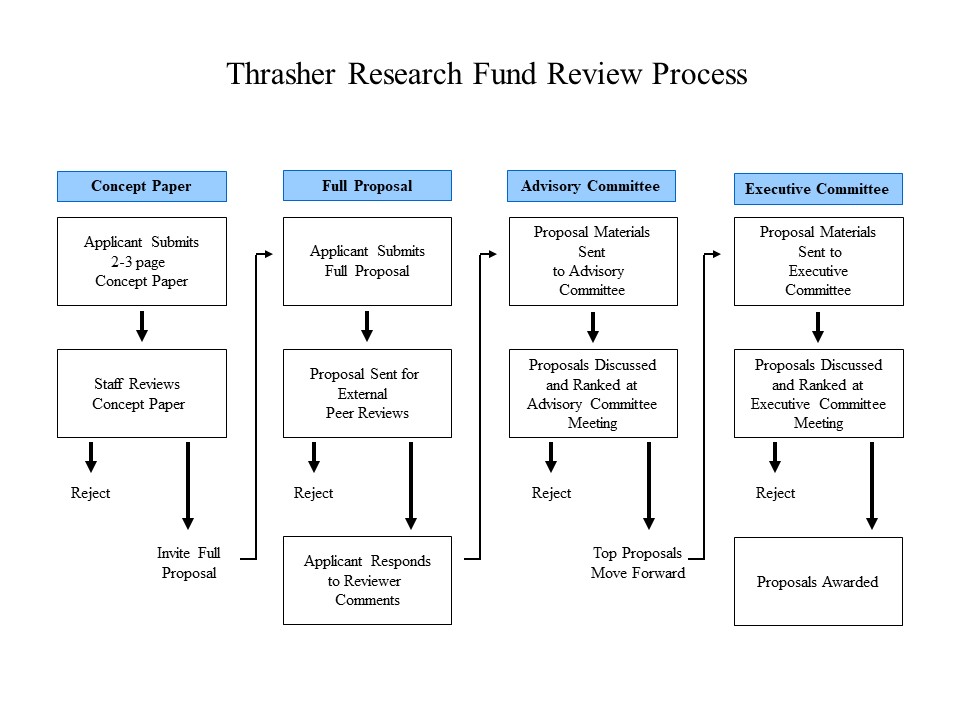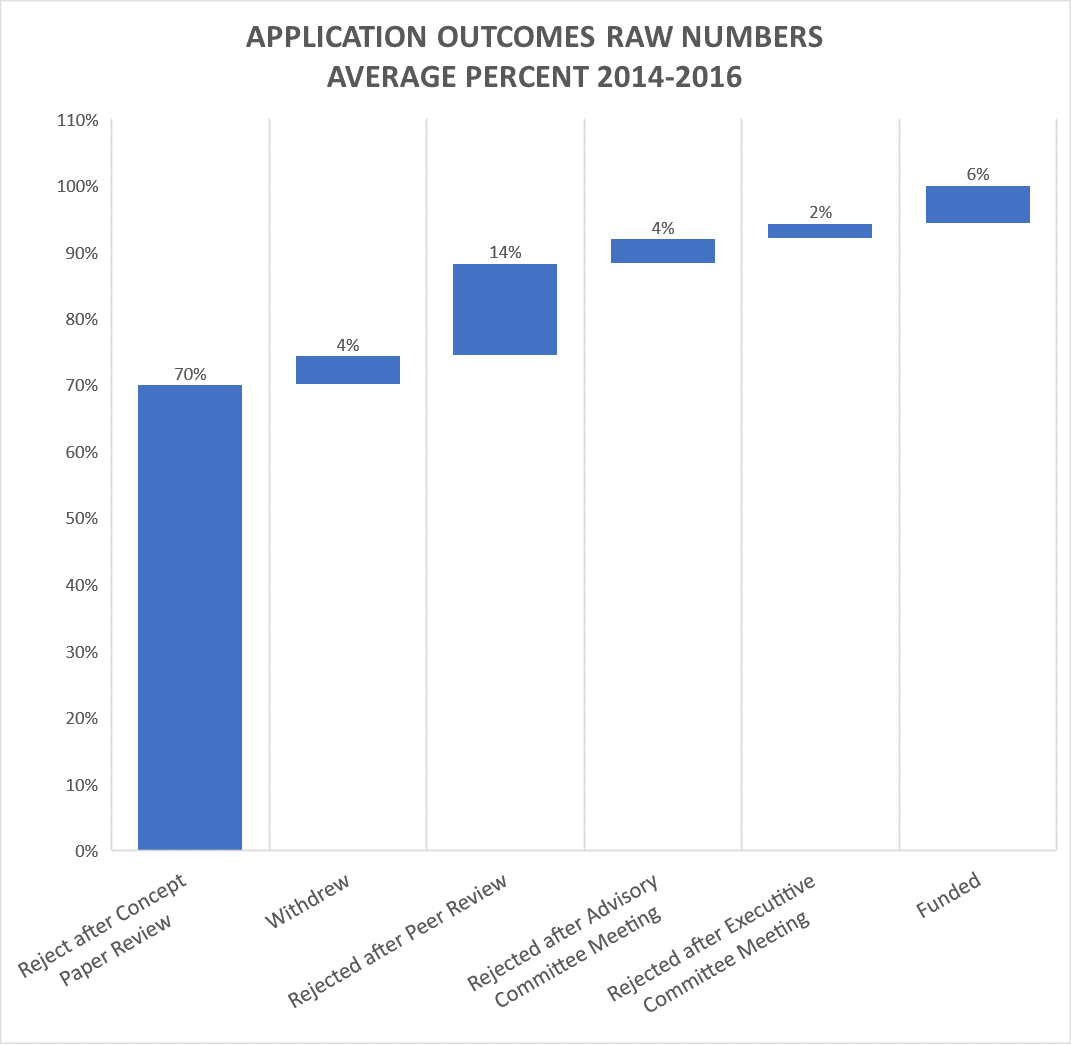E.W. "Al" Thrasher Awards
Downloads
Award Focus
E.W. "Al" Thrasher Awards focus on projects that are changing pediatric clinical care. Each award is a novel approach to problems plaguing pediatrics. The award is open to applications focusing on any disease or topic within the umbrella of pediatrics, both in and outside the United States.
Ideal applications for the Thrasher Award address significant health problems, offering the potential for practical solutions to these problems. Typically, the primary outcome is a health outcome in children. Solutions should be innovative and have the potential for broad applicability with low barriers to implementation. Projects with a shorter distance to clinical applicability are given priority. Hypothesis-driven research is critical, exploratory, or hypothesis-generating research will not be competitive.
For projects focused on improving disease diagnosis, please ensure that there are well researched, effective treatment options available to patients upon diagnosis.
Exclusions
- Behavioral science research including classes or counseling on health habits, treatments, stress coping, or mental health
- Educational programs including training for patients, caregivers, or hospital staff
- Projects focusing solely on disease mechanism or microbiome
- Research on human fetal tissue
- Research conducted in cell lines or animal models
Application Tips and Requirements
Thrasher's focus is on child outcomes- we want to fund science that will make meaningful progress in the way diseases are diagnosed and treated. Competitive grants often, but are not required to, focus on severe or high incidence diseases. The aims include child driven outcomes, and the proposals are far enough along in the research process to make a clinical difference within a few years.
If the submitted grant includes study sites outside the Principal Investigator home country, applications must include a co-investigator from each country included as a study site. Capacity building and buy in from local leaders and clinicians is critical to our mission for improving child health.
Please feel free to reach out to out Research Managers with inquiries about project ideas or proposal aims. We are happy to discuss specifics and give you an idea of what will be competitive.
Eligibility
Principal Investigators must be qualified in terms of education and experience to conduct research. A doctoral-level degree is required. There are no citizenship or residency requirements. The Fund is open to applications from institutions both inside and outside the United States.
Application Process
The Fund uses a two-step process for E.W. "Al" Thrasher Awards. The first step is the submission of a Concept Paper. These Concept Papers are reviewed by the Fund's staff. Applicants whose concepts generally fit with the current priorities of the Fund are invited to submit a full proposal. Applicants have about 10 weeks to submit a full proposal from the date of invitation. Full proposals are reviewed by external peer reviewers with specific expertise in the subject being proposed. Proposals recommended by peer reviewers are considered by the Fund's Committees. The Committees meet to make funding decisions in March and September.

Timelines
Timelines are generally the same from year to year, specific dates are found below:
2026 Spring Cycle
| Concept Submission Deadline | July 15, 2025 (Noon Mountain Time) |
|---|---|
| Concept Paper Decisions | By August 8, 2025 |
| Full Proposal Submission Deadline | Last week of October |
| Peer Review Completion | Approx. January 2026 |
| Response to Peer Review | Approx. January 2026 |
| Peer Review of Revision | Approx. February 2026 |
| Proposal Materials to Advisory Committee | February 13, 2026 |
| Proposal Materials to Executive Committee | February 27, 2026 |
| Final Decision | March 14, 2026 |
2026 Fall Cycle
| Concept Submission Deadline | January 13, 2026 (Noon Mountain Time) |
|---|---|
| Concept Paper Decisions | By February 12, 2026 |
| Full Proposal Submission Deadline | Date Assigned- April 28-30, 2026 |
| Peer Review Completion | Approx. July 2026 |
| Response to Peer Review | Approx. August 2026 |
| Peer Review of Revision | Approx. August 2026 |
| Proposal Materials to Advisory Committee | August 14, 2026 |
| Proposal Materials to Executive Committee | August 28, 2026 |
| Final Decision | September 11, 2026 |
2027 Spring Cycle
| Concept Submission Deadline | July 14, 2026 (Noon Mountain Time) |
|---|---|
| Concept Paper Decisions | By August 13, 2026 |
| Full Proposal Submission Deadline | Date Assigned- October 27-29, 2026 |
| Peer Review Completion | Approx. January 2027 |
| Response to Peer Review | Approx. January 2027 |
| Peer Review of Revision | Approx. February 2027 |
| Proposal Materials to Advisory Committee | February 12, 2027 |
| Proposal Materials to Executive Committee | February 26, 2027 |
| Final Decision | March 12, 2027 |
Budget Guidelines
The grant amount is based on the actual budgetary needs of the project. The duration of the project can be up to three years. Indirect costs are no more than 7% of direct costs. In 2020-2025 the median grant was $420,000. Grants are generally not given over $600,000.
Investigators and co-investigators in need of salary support may apply for no more than 20 percent, based on a 40-hour work week. The Fund limits the maximum salary upon which an individual can request salary support. The maximum amount will be based on the NIH guidelines for salary support. Salaries for support staff, students, and others do not have the 20% restriction.
Requests for purchase of major equipment (items >$4,000) are discouraged and rarely funded.
The final budget should be consistent with the budget amount proposed in the approved Concept Paper. All exceptions must be cleared through the Fund.
-
General operating expenses
-
General bridge funding for incomplete projects
-
Construction or renovation of buildings or facilities
-
Loans, student aid, scholarships, tuition
-
Support of other funding organizations
Co-Funding
The Fund is open to a variety of different opportunities that include co-funding of projects with different funding sources. The portion of the project proposed to Thrasher should be discrete, although it may be dependent on portions of the study funded from other sources such as testing of additional hypotheses from an ongoing trial. Proposals requesting Thrasher to commit money to a larger pool of funding with no distinct project proposed to Thrasher will not be funded. Co-funding requests are dealt with on a case-by-case-basis. Interested applicants may consult with one of the Fund's Research Managers to discuss specifics of their individual situations.
Video Submission for Committee Meetings
We invite our applicants to create a PowerPoint video, no more then three and a half minutes, to be submitted at the same time as the proposal revision after peer review. These videos should convey the need for the project, focusing on the research gap and potential for improved clinical care. They should also cover the hypothesis, aims, and study design of the proposal.
Videos are played in Committee Meetings as each project is discussed. We hope that they allow applicants to convey what they see as the most important aspects of the project and make a case for funding.
Instructions can be found in the "Downloads" section of this page.
Success Rates

